Famine: What does famine mean and how do countries help to deal with it?
- Published
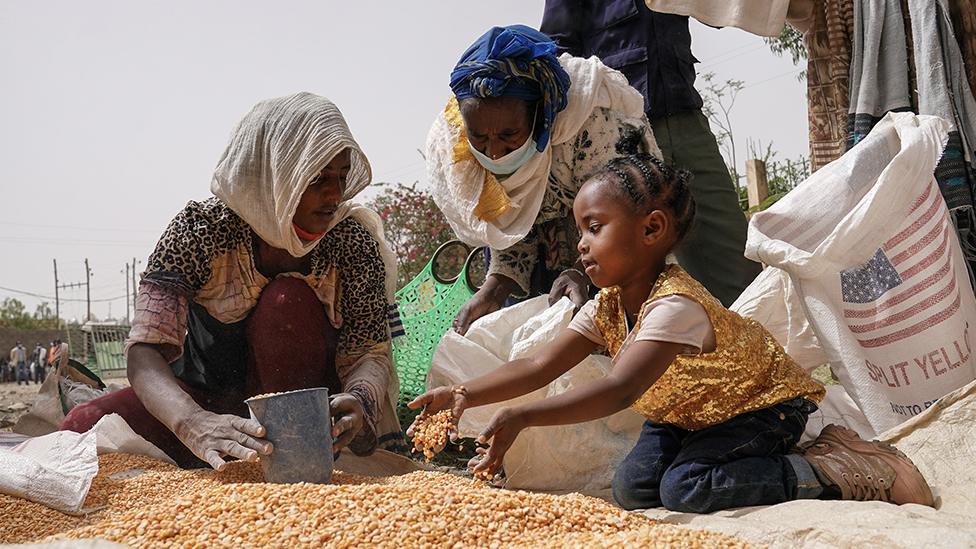
A girl in Mekele, Ethiopia, helps divide a bag of lentils into portions. The food aid has been sent to help people at risk of famine.
Famine is a term used to describe "the worst possible food crisis", according to children's charity Unicef.
Famines are not new, they are something that have always affected societies. They have often been driven by natural disasters like drought, but there are often lots of complicated factors.
![This picture from 1659 shows Francesco I d'Este Assists His Subjects with Great Generosity During the Great Famine of 1648 and 1649, from L'Idea di un Principe ed Eroe Cristiano in Francesco I d'Este, di Modena e Reggio Duca VIII [...], 1659.](https://ichef.bbci.co.uk/ace/standard/976/cpsprodpb/14B5E/production/_119003848_famine__0000_gettyimages-1219599074.jpg)
This painting from 1659 shows people Italy dealing with a famine in 1648 and 1649.
What is famine?
The simple definition used by international groups is that famine is "the absolute inaccessibility of food to an entire population or sub-group of a population".
This means that there is not enough food available for the amount of people who need it.
However, that definition is just the highest rating of a system which highlights problems and helps people before the situation reaches famine.
Groups like the United Nations and the World Food Programme use the Integrated Food Security Phase Classification. It is a "common global scale" to identify food insecurity and malnutrition.
1. Minimal/None
2. Stressed
3. Crisis
4. Emergency
5. Catastrophe/Famine
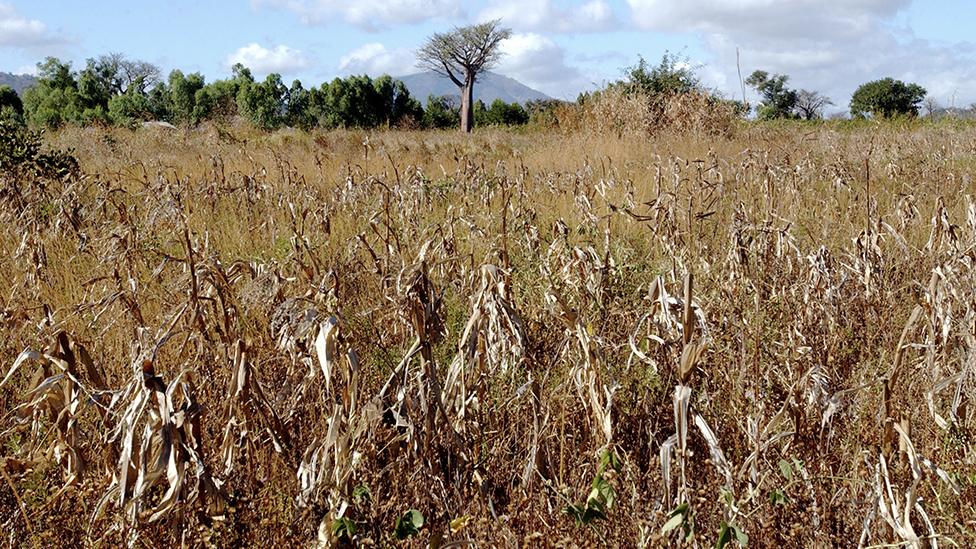
This is a failed crop in Malawi in 2003. Flooding then drought meant lots of food failed to grow and created a food shortage in the area.
The stages go from one, which is minimal or no food insecurity, through to five, where people are experiencing a 'Catastrophe/Famine'.
The IPC uses this scale to define a food supply problem that "threatens lives or livelihoods," and their aim is to find "short-term" solution to "prevent or decrease" that threat.
This system is designed to identify an urgent problem and find a solution to solve that problem as quickly as possible. There are other measures for long-term issues affecting food supply.
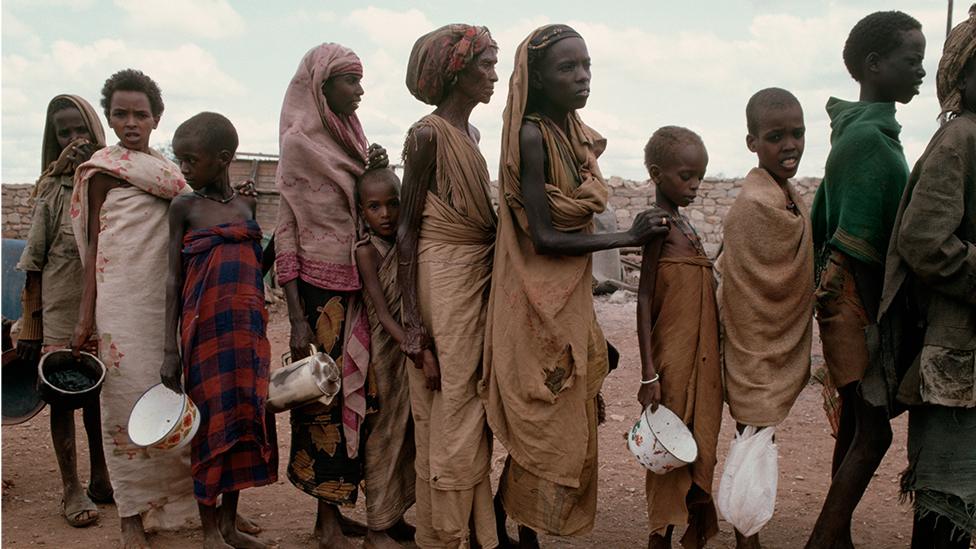
Victims of famine in Somalia wait for food. This photo is from 1992.
What causes famines?
Recent famines in parts of Africa were caused by droughts in 2011 and 2012.
However, the head of the United Nations has recently warned that modern famines are driven by something else - war.
"We have made enormous inroads into hunger over recent decades, thanks to improved productivity and reductions in global poverty," he recently told the UN Security Council.
"Famine and hunger are no longer about lack of food. They are now largely man-made — and I use the term deliberately. They are concentrated in countries affected by large-scale, protracted conflict."
Famines driven by conflict include in Yemen and a war in a place called Darfur that led to famine in Sudan between 2003 and 2005.
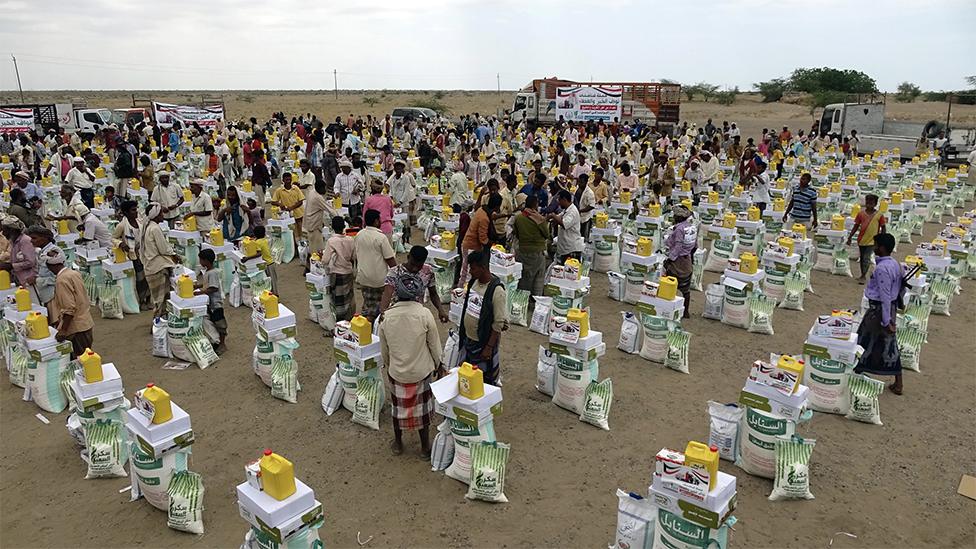
Countries often race to help regions suffering with food shortages. This is aid from Kuwait being distributed to people in Yemen.
What happens once a famine has been declared?
The UN officially declaring a famine doesn't force member nations to do anything. However, it does give the issue more importance. For example, there is a very good chance you are reading this article because famine is in the news and you searched the internet for information about what that means.
The head of the UN, Antonio Gutteres, said in March 2021, that "addressing hunger is a foundation for stability and peace."
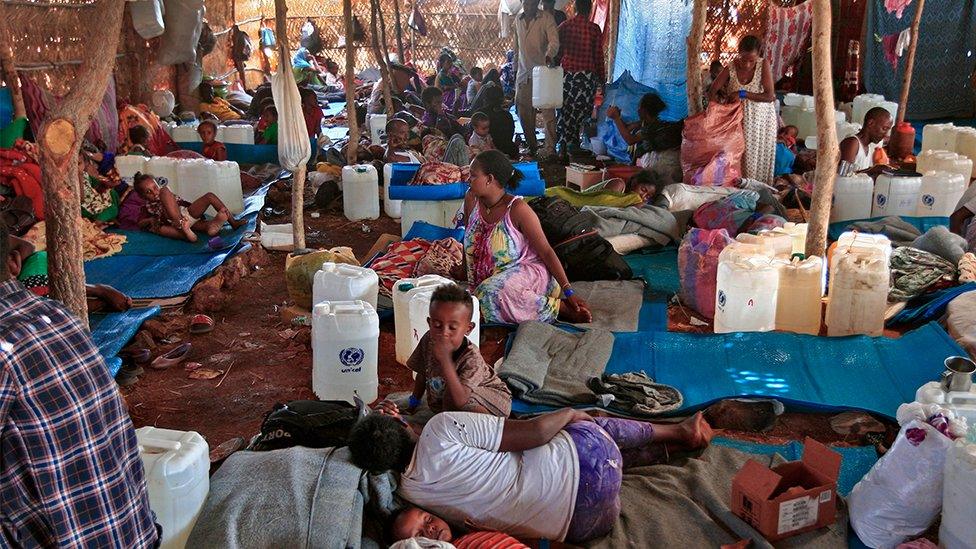
A refugee camp in Sudan that is now home to Ethiopian refugees who have fled fighting in the Tigray. You can see supplies from UN - water bottles and food parcels - which are the sort of items countries provide to help people dealing with food shortages.
Member nations, he said, should "do everything in your power to end violence, negotiate peace and alleviate the hunger and suffering that afflict so many millions of people around the world.
"There is no place for famine and starvation in the twenty-first century."
Some countries have tried to step forward to help. In 2021, as the situation in the north of Ethiopia worsened the UN called for more help.
The United Kingdom promised to add almost £17m to help, having already given money. In early June the United States promised to provide $181 million (£130m) to support the humanitarian effort in the region. The UN also increased its spending in the area, with money given to it by member countries.
Famine is a difficult topic, so it's completely normal to feel sad about news like this. Click here for advice on what to do if you're upset by the news.
- Published3 July 2021
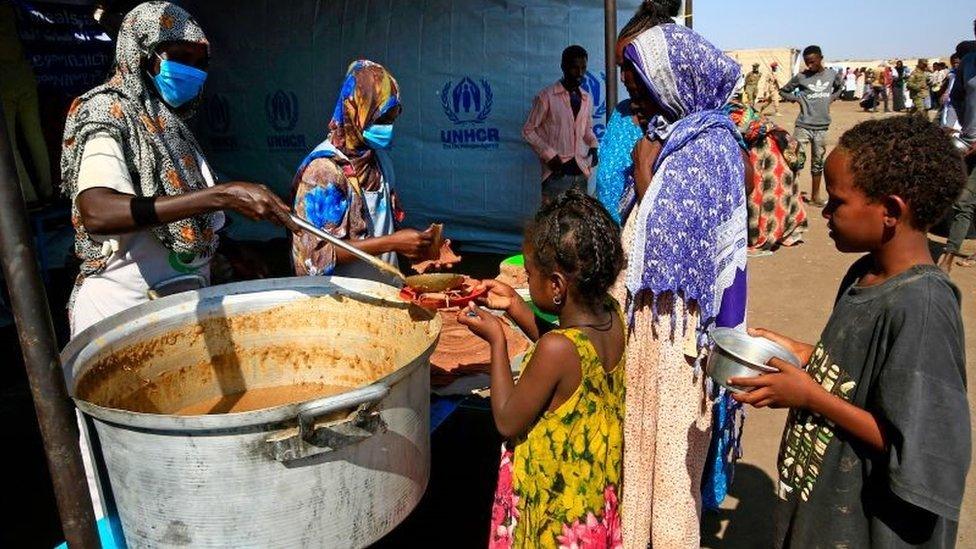
- Published29 August 2022

